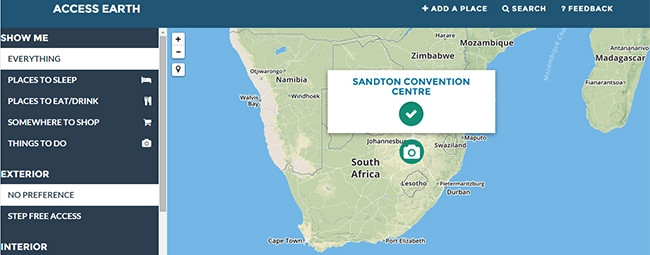
Irish start-up Access Earth aims to help people with disabilities navigate their surroundings with less hassle and frustration.
The Google Maps-like interface aggregates crowdsourced accessibility data into an interactive world map of accessible locations; for example, restaurants, theatres and hotels.
Finding locations that are accessible for people with disabilities ? those who use wheelchairs, for example ? can be tricky and time-consuming. Many businesses do not list their accessibility information online, or list incorrect information if they do.
For example, Access Earth developer Ryan O'Neill told Mashable of an incident in which he visited a restaurant which had an accessible bathroom, but had situated it down a flight of stairs with no elevator.
Access Earth hopes to allow users with disabilities to find places to visit or stay quickly and reliably, without needing to spend unnecessary time searching through individual Web sites or phoning businesses to ask if they are accessible, says founder Matt McCann.
Originating in Ireland, Access Earth displays over 2 900 accessible locations in Ireland and the UK. The platform plans to develop the US as its secondary area of focus within the next year, and at the time of writing shows 46 locations along the Western and Eastern coastal areas of the country.
Despite development being targeted to specific areas, anyone can contribute to Access Earth. In South Africa, the Sandton Convention Centre is listed on the Access Earth map as an accessible location.
O'Neill hopes the platform will encourage businesses to think more about how accessible they are, and what they can do to improve their facilities.
The platform's usefulness is not limited to people with disabilities, he adds, noting his grandparents prefer not to visit restaurants that have too many steps to climb.
Share